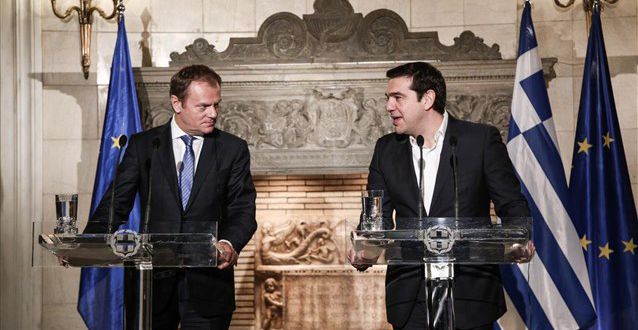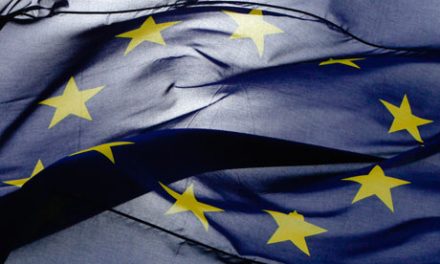By Euroactiv
Speaking in Athens on Thursday (3 March), Council President Donald made a pathetic appeal to ‘economic’ migrants not to come to Europe.
Tusk visited Slovenia, Croatia, Greece and is in Turkey today, in preparation for the EU-Turkey summit to be held in Brussels on Monday (7 March).
Turkey and Greece are key countries in the context of the unprecedented migrant crisis, as the vast majority of incoming refugees, most of whom do not qualify for asylum, cross from Turkey to the Greek islands, in the Aegean Sea.
After talks in Athens with Prime Minister Alexis Tsipras, Tusk told economic migrants it was pointless to try to reach the European Union, which is struggling maintain its prized Schengen passport-free travel area in the face of the surge of people moving across the bloc’s borders.
“I want to appeal to all potential illegal economic migrants wherever you are from: Do not come to Europe,” Tusk said.
“Do not believe the smugglers. Do not risk your lives and your money. It is all for nothing. Greece or any other European country will no longer be a transit country. The Schengen rules will enter into force again”.
At least in theory, the EU can return economic migrants to their countries or to countries outside the EU from where they crossed, but in reality the number of repatriations and readmissions is insignificant.
On 25 February, Migration Commissioner Dimitris Avramopoulos said the EU had ten days to curb the number of refugees coming to Europe, or the bloc’s migration system could “completely break down”.
From Greece, Tusk travelled to Ankara, where he said he wanted to reduce the number of people coming into the EU from Turkey.
He sought to encourage Turkey to take further action to sharply cut the numbers of people taking to unseaworthy boats to reach Greece.
“It is for Turkey to decide how best to achieve such a reduction,” Tusk said after meeting Prime Minister Ahmet Davutoğlu, floating the idea of a “fast and large scale mechanism” to ship back irregular migrants from Greece.
“It would effectively break the business model of smugglers.”
Tusk is due to meet Turkish President Recep Tayyip Erdoğan for key talks on the refugee crisis on Friday (4 March).
‘Detrimental to European spirit’
Today the EU also plans to unveil a “roadmap” to restore the Schengen zone – a keystone to the spirit of European unity.
The crisis has raised fears for the zone as more states bring back border controls, with both Sweden and Denmark announcing another temporary extension of border identification checks on Thursday.
But sources in Brussels said the EU’s “roadmap” on Friday would outline a plan to restore the Schengen zone to full force by November.
The plan includes quickly creating an EU coastguard system and strengthening Greece’s external borders.
At the Greek-Macedonian border, migrants from countries like Egypt and Pakistan – and therefore not classed as refugees – remained undeterred, despite the many hurdles.
“I know the border is closed but I want to go to Germany, I will try, try, try,” said Mohamed, an Egyptian who plans to pay smugglers to sneak into Macedonia through the hills.
“Egypt is bad, there is no work.”
According to the International Organization for Migration, 120,369 migrants arrived in Greece from Turkey so far this year. At least 321 died en route.
With thousands stuck on the Greek-Macedonian border after Austria and Balkan states began tightly restricting migrant entries, Tusk lashed out in Athens at the “unilateral” moves made by EU members, slamming them as “detrimental to the European spirit of solidarity”.
Tsipras said he would like to see sanctions imposed on EU states that undermine joint decisions by the 28-member bloc.
His Deputy Defence Minister, Dimitris Vitsas, said there were now nearly 32,000 refugees on the Greek islands and the mainland. A senior UN migration official said the number could surge to 70,000 in the coming weeks.
On Wednesday (2 March), the EU unveiled a €700-million emergency aid plan to help Greece and other member countries, the first time humanitarian aid has been used within Europe.
Some 1.13 million migrants have arrived in the EU over the past 14 months.



















